Fortnite's fun is buried under five years of gaming's clutter
Horde mentality.
Remember when zombies were cool? I think to myself, mashing the right trigger to slap down a few more with the big pointy stick I crafted earlier. That's about the time this game was announced.
After more than five and a half years, Fortnite is back. Again. This time, after the first re-reveal in 2014 , and a missed 2015 open beta, it seems to be the real deal: it'll be free to play, but you can pay anything between £35 and £125 for a variety of Early Access bundles through the Epic launcher (it's not on Steam); it's coming to PlayStation 4 and Xbox One now too, alongside PC and Mac; early access starts on July 25th, and it's releasing, properly, at some point early-ish in 2018, about six or seven years after the first announcement.
Mentioning Fortnite's extraordinarily protracted development - and multiple reveals and re-reveals - almost feels like a low blow; it's a game clearly made with the heartfelt good intentions of an earnest team. But, unfortunately, the uncomfortable history is so heavily entwined in what the game has become, I can't avoid it. Fortnite is a product of its time - 2011 - that has subsequently been tweaked and tuned, prodded and poked, for the five and a half years since, until the original concept is almost totally obscured by all of the references to other, more focused big-money hits of the past half-decade. The fine-tuning has certainly modernised it - loot boxes, hurray! - but is it a game people will be excited to play in 2018? (Or about six months earlier, if you want to pay for the unfinished build of a free-to-play game.)
The version I played of Fortnite, anyway, is near-enough the version available to those in the closed alpha now. We went through the game's "onboarding" process (a tutorial) and were then plopped into the main map. I say "we," because although Fortnite can be played alone it is very much tuned for cooperative, online play, and that is rightly how Epic Games think it is best enjoyed. So, we promptly load into the first few main story missions as a kind of squad, ready to grind this mother until we have some more loot, so that we're high enough level to do some more missions, which have loot in them - and everyone knows what loot is good for. (It's good for doing more missions.) First major influence from another big, successful game, check: that'll be Destiny.
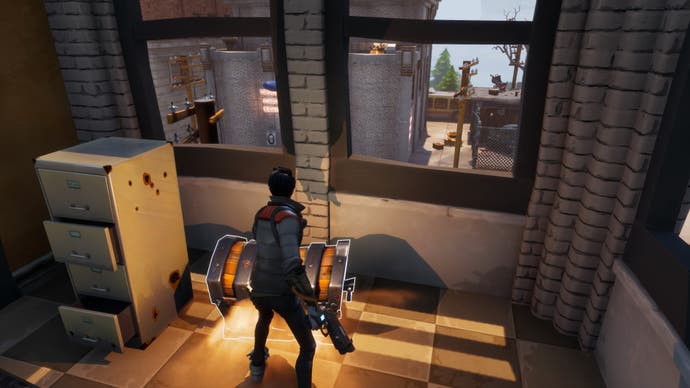
The missions I've seen generally follow the same formula: you have unlimited time to run around a large-ish, procedurally-generated instance of the world, whacking away at cars and trees and buildings alike to harvest them for resources (wood, metal, and stone are the three elements you'll need for structures, with smaller bits and bobs required for the more interesting things like traps) until you've had your fill and want to trigger the shuffling horde. At that point, you gather around the MacGuffin in question to defend it, and again have an unlimited amount of time to build whatever twisted maze of lures and defences you can imagine - and pay for with your gathered materials.
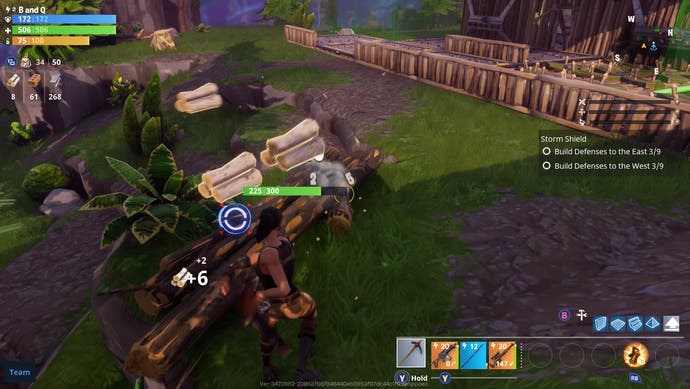
Here, at least, there is a proper joy to Fortnite. I can't tell if it's my particularly compulsive personality, or just broader human nature itself, that makes it such a pleasure to line up a self-sufficient network of traps and watch little foes scuttle towards their automated doom. I love it, either way. And likewise the old formula of several friends holding off a siege will probably never fail to deliver. It certainly delivers here - even if the "everything's better with friends" mantra rings true - and I feel that I'm still some way from really hitting the potential for my weaponised grand designs.
But, fun as Fortnite can be, this portion of the game's perpetual cycle still feels like a missed opportunity for something greater. My dream of a fully-automated fortress of death - Plants vs. Zombies captured this brilliantly - was never quite realised. In part it's because the AI doesn't really work that way: more than once, with enemies known to be attacking from all sides, I created a single route to the objective so that they'd all be funnelled into my corridor of traps and turrets - but instead of running round to that path of least resistance, they just slammed into the nearest walls on their straight-line route and started chipping away at them, forcing me to go mow them down with a generic rifle instead. (It's likely also because I hadn't progressed far enough through the game to unlock the really cool stuff, but I can't speak for what I haven't seen or played.)
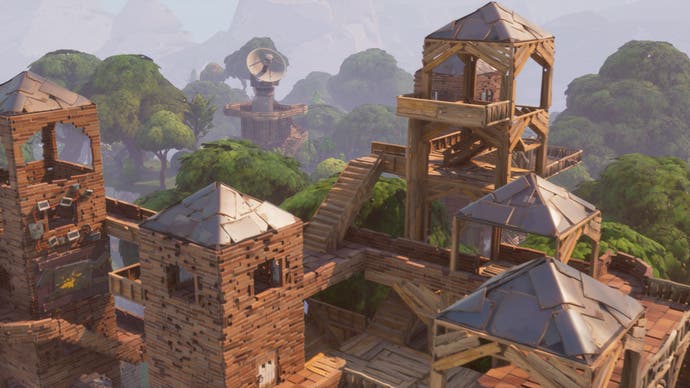
The game, most importantly, just isn't made to be played just that way. Alongside turret defence it's also a third-person shooter, and a melee action game, and looter, and builder, and so on forever and ever. Play however you want is the well-intentioned philosophy, but it's sadly misguided. Games you can play however you want are completely open - imagine if Minecraft only gave you rigid, prefab walls and ramps for just one type of castle, instead of its flexible barebones blocks. Fortnite, by contrast, is a conglomeration of other games and their accompanying rules and systems, awkwardly stuck together. There seems to be a misplaced hope that adding more features, mechanics, and curated playstyles will also add more flexibility, but it does the opposite. I feel like in playing one way, I'm funneled into the other, because of a belief that all of these different games are fun - and so they should all be in this game together, at the same time.
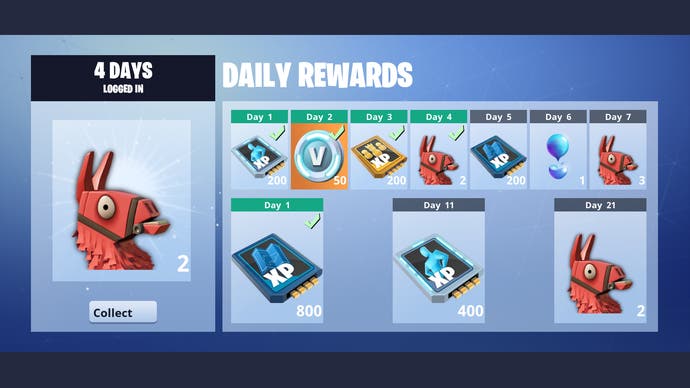
Epic has long argued that games these days should be one thing: a service, developed alongside the input of its players. But Fortnite is not naturally that game, and that philosophy is so obviously getting in its way. Moulding it to the service-based model means a game about building and defending forts also has purchasable loot boxes, and collectible cards, and collectible heroes, and an extensive RPG skill tree, and all kinds of bloat designed around the base tendencies of compulsion and infinite progression. An over-anxiousness towards player feedback, meanwhile, means any original vision is constantly challenged - and so what started out as a quick-turnaround game jam project morphs into a perpetually-tinkered, six-year-old behemoth. The result of all this is that it feels, at times, as though playing Fortnite is like playing a business model, when there's a fun and charming enough game hidden somewhere beneath it.
But even then, what would that hidden game be? If only Fortnite was just about the building and the defending, I carry on thinking to myself, staring at the endless, between-game tabs of cards and characters. But then that would be Orcs Must Die - and orcs are much more in vogue than zombies now, anyway.
This article is based on a press trip to Berlin. Epic covered travel and accommodation costs.
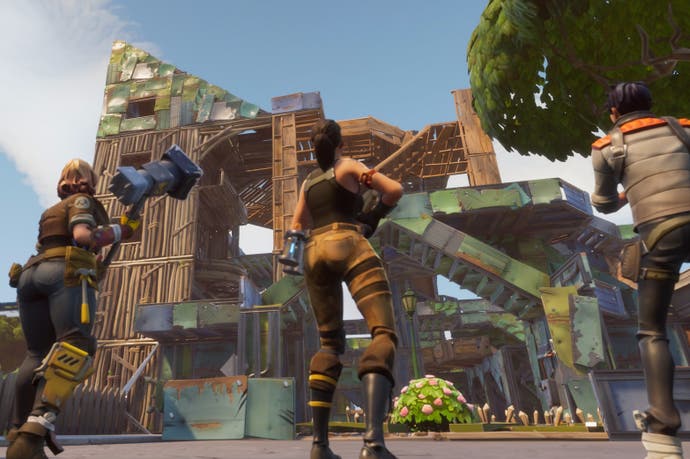


_Z5mtk2C.jpg?width=291&height=164&fit=crop&quality=80&format=jpg&auto=webp)





